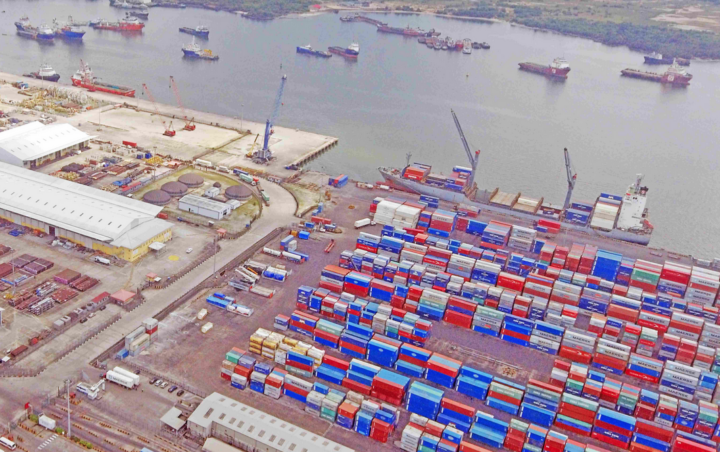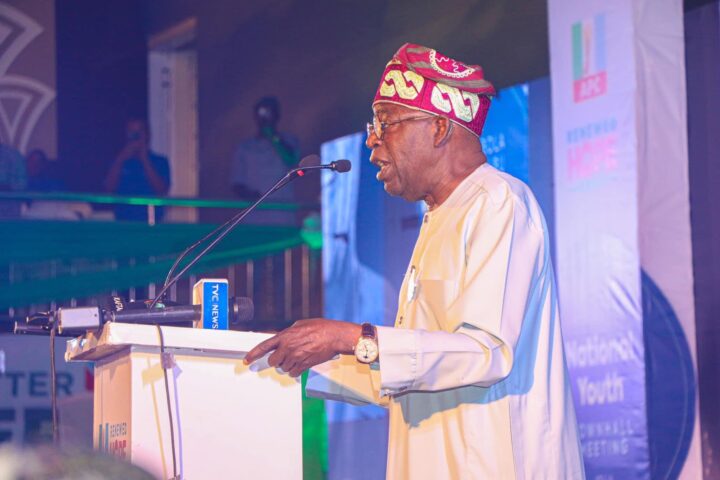Onne Port
The United Nations Economic Commission For Africa (UNECA) says the African Continental Free Trade Area (AfCFTA) increased trade between countries in the region by 20 percent in 2022.
Antonio Pedro, acting executive secretary of UNECA, spoke on the success of the AfCFTA project on the sidelines of the 9th session of the Africa regional forum on sustainable development in Niamey, Niger Republic.
The commission, in 2018, estimated that the AfCFTA would increase intra-Africa trade by 52 percent by 2022.
Speaking on whether the objective of 52 percent intra-African trade was achieved, Pedro said the level of trade had increased but not up to its target.
Advertisement
He said the rise in intra-African trade, however, was already encouraging certain countries to trade amongst themselves.
“Certainly not yet. But the levels of intra-African trade have gone up from 13 percent or so, before the African Continental Free Trade Area agreement was adopted, to now around 20 percent but that is not good enough because other regions are trading amongst themselves,” Pedro said.
“I mean, above 70 percent or so in Europe and Asia. So, that certainly is our target.
Advertisement
“Under the AfCFTA trade division, Kenya, a couple of other countries Ethiopia and so on.
“So, now it’s really about scale, it is about making these movements that cover the entire continent.
“One is to look at the product complementarity between our countries, so we could have African countries trading inputs with another country where, perhaps, you have a much larger processing capacity, and one example that I like to cite is between, for example, Gabon and Cameroon.
“Cameroon has processing facilities for palm oil products that require additional inputs coming from the sub-region, and in this case, one could look at certain processed palm oil products coming from Gabon being processed in Cameroon to produce from soaps to oils to all sorts of other things.”
Advertisement
Pedro said the commission was making a trade decision supporting modeling, which is an exercise to identify the best export destinations for African countries.
However, he said the distance between African countries was much farther away than the distance between Africa and other continents.
“In the case of Cameroon that we have done one study; Nigeria certainly is the closest trade destination, however, what is very interesting is that a country that is not far from Cameroon which is the Democratic Republic of Congo (DRC) is trade distance,” he added.
“Countries that are miles away, China and the U.S. are closer trade-wise to Cameroon than DRC.
Advertisement
“Why is it that DRC is a trade distance is because there are infrastructure issues. There are issues with essentially the connections and we need to address those binding constraints to Africa trading amongst themselves such as infrastructure.
“Some are hard infrastructure that we need to invest in improving links between our respective countries, others are soft infrastructure.”
Advertisement
MORE MEASURES TO IMPROVE TRADE
Pedro also said the protocols that had been approved and some that were in the pipeline needed to be mainstreamed and domesticated in national legislation.
Advertisement
“We still have situations where the customs departments are not aware. I mean, we are already trading within these AfCFTA trade regimes and they do not know what is the list of 90 percent of products that can be traded without barriers or levies.
“We do not face problems in trading, and also communication about the AfCFTA needs to be improved within government departments,” he said.
Advertisement
The acting executive secretary of UNECA also said information needs to reach the operators on ground so that exporters are not faced with all sorts of barriers.
“That is why the implementation of the African Continental Free Trade Area rests also in the accelerated implementation of the boosting intra-African trade data action plan.
“Basically, data is about addressing the binding constraints to celebrating intra-African trade which is again, a combination of hard and soft issues.”






